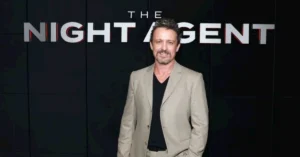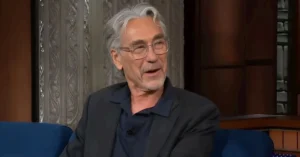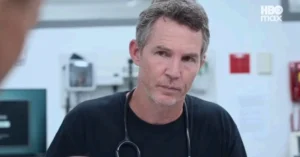Wendy Williams is set to challenge her current guardianship arrangement as she prepares to have her case decided by a jury. The former talk show host, who has been under guardianship for over a year, maintains that she is mentally capable and deserves the freedom to live life on her own terms. In this report, we examine the details of her guardianship case, her personal statements, and the ongoing legal process.
Wendy Williams has consistently pushed back against claims regarding her mental state. She has expressed strong views about her ability to manage her affairs, calling the process a fight for her freedom. Her healthcare advocate, Ginalisa Monterroso, has confirmed that Wendy is eager to share her side of the story as the legal proceedings move forward. Wendy has repeatedly stated that she is not cognitively impaired and that she passed her mental competency tests with excellent results.
Legal Case Update
Wendy’s guardianship case will soon be evaluated by a jury, a step that many believe will allow her to finally regain control over her life. According to her healthcare advocate, the legal process has been stalled by ongoing disputes over her mental health diagnosis. Wendy has publicly described the situation as frustrating and restrictive. She shared on a recent talk show that her primary goal is to end the guardianship and have her case decided by a jury.
During her recent interview on Good Day New York, Wendy confidently mentioned that she had successfully passed a mental competency test at a hospital. These remarks have been a clear indication that she feels more than capable of making her own decisions. Her comments also highlighted the ongoing controversy regarding her diagnosis and the conditions under which she is being held.
Health Concerns Raised
In 2023, Wendy was diagnosed with primary progressive aphasia and frontotemporal dementia. However, her healthcare advocate, Ginalisa Monterroso, has cast doubts on the validity of this diagnosis. Monterroso explained that symptoms of alcohol-induced dementia can closely mimic those of frontotemporal dementia and are, in fact, reversible.
Monterroso pointed out that if Wendy had truly been diagnosed with a progressive form of dementia, there would have been more noticeable signs of decline by now. The advocate stressed that additional testing by an independent neurologist is a necessary part of the upcoming legal proceedings. This independent evaluation aims to provide a clear understanding of Wendy’s mental state and to ensure that the treatment she has received has been fair.
Living Situation Criticized
Wendy has not held back her criticism of the assisted living facility where she currently resides. In a recent interview on The Breakfast Club, she compared her living conditions to being in prison. Wendy noted that while she is surrounded by residents in their 70s, 80s, and 90s, she feels out of place. Her remarks underline her frustration with what she perceives as unnecessary restrictions placed on her daily life.
Her outspokenness on this matter has drawn attention from both fans and legal observers, who see her struggle as a critical battle for personal freedom. The welfare check that occurred on March 10, initiated by her healthcare advocate, further highlighted the challenges Wendy faces. Following this check, Wendy was taken to a hospital for evaluation—a move intended to gather more evidence regarding her mental condition.
Case Implications and Future Steps
The guardianship case is now moving into a phase where Wendy’s mental health will be reassessed with fresh, independent insights. The upcoming jury trial represents a pivotal moment in her fight to reclaim her independence. Her healthcare advocate believes that the trial will not only clarify Wendy’s mental state but will also demonstrate that keeping her under guardianship may be an unjust infringement on her rights.
Key points from the case include:
- Wendy’s strong stance against claims of cognitive impairment.
- The ongoing legal process that will see her mental competency reassessed by an independent neurologist.
- Public statements from Wendy emphasizing her desire to regain freedom.
- Criticism of her living conditions that has intensified the debate over the necessity of her current guardianship.
The outcome of the case is expected to have broader implications for how guardianship cases are handled, particularly when they involve individuals who continue to assert their independence and competence. For Wendy Williams, the case is not just about ending a legal arrangement but about reclaiming a sense of dignity and control over her personal life.
Also Read: Charlamagne Tha God Reacts to Wendy Williams’ Documentary: ‘It Was Sad’
For more updates on Wendy Williams guardianship, tune in to Vviptimes.




























